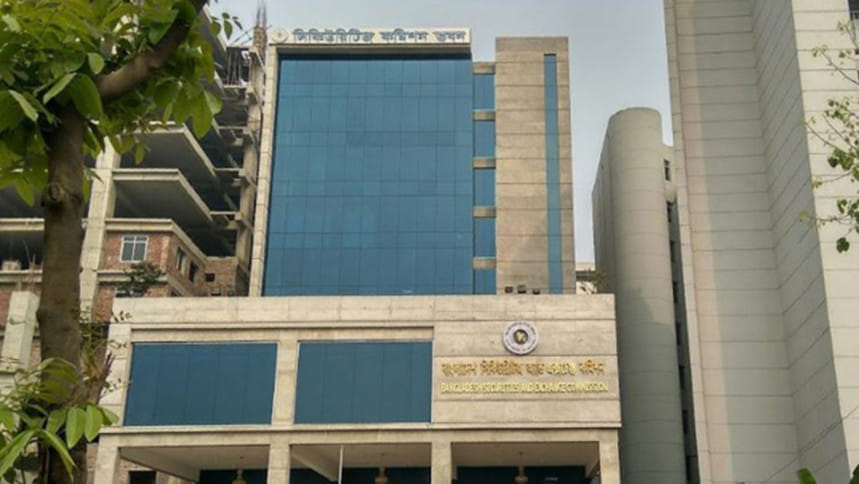BSEC to punish 44 firms over shareholding rule violation

The Bangladesh Securities and Exchange Commission (BSEC) is going to take action against 44 listed companies whose sponsors and directors have failed to jointly retain the minimum 30 percent shareholding required by law.
In response to this non-compliance, the stock market regulator will appoint independent directors to the boards of the companies in question.
The requirement dates back to a BSEC circular issued on November 22, 2011, which made it mandatory for each director of a listed company to hold at least 2 percent of shares individually.
For all sponsors and directors together, the minimum threshold for joint holding was set at 30 percent.
Although many directors did not comply, the regulator remained inactive in this regard for nearly a decade.
It was not until 2020 that the BSEC took its first punitive action by removing several directors who failed to meet the individual 2 percent threshold.
Some firms did respond to the directive, with sponsors and directors increasing their shareholding to the required level.
However, compliance has remained patchy. Now, after a long pause, the BSEC is once again preparing to take measures against violators.
The commission recently instructed the sponsors and directors of 44 companies to raise their collective stake to at least 30 percent.
As they failed to do so, the BSEC is invoking the Corporate Governance Code of 2018, which empowers the commission to appoint independent directors in such cases.
A market analyst said that when sponsors increase their shareholding, it sends a strong, reassuring signal to investors.
He said that many of the 44 companies are currently underperforming, which could explain the reluctance of the sponsors to buy additional shares.
"In this situation, if the regulator can improve performance of the companies by appointing efficient independent directors, it would be good news for investors," the analyst added.
Stocks drop to five-year low
Indices of the Dhaka Stock Exchange (DSE) plunged further yesterday, marking the sixth consecutive day of losses as investor sentiment remained subdued.
It sent the benchmark index of the Dhaka Stock Exchange, DSEX, to 4,615 -- the lowest in five years. In August of 2020, the index was 4,533.
Yesterday, the DSEX fell 62.72 points, or 1.34 percent. The Shariah-compliant DSES index shed 1.59 percent to end at 1,008.14, while the DS30, which tracks blue-chip stocks, dropped 0.91 percent to 1,708.36.
Turnover, a key indicator of market activity, declined 3 percent to Tk 264.98 crore from the previous session.
A total of 114,875 trades were executed during the session. Of the issues traded, 295 declined, 63 advanced, and 40 remained unchanged.
Among A category shares, 168 declined, 29 advanced, and 22 remained unchanged. In the B category, 69 scrips lost value while only 10 gained. The N category, which represents market newcomers, saw no trading activity.
Other segments mirrored the downward trend, with more declines than advances observed in mutual funds and corporate bonds.
Government securities, however, posted a contrasting performance with three issues advancing and one declining.
Heidelberg Materials Bangladesh registered the highest gain of the day, surging 8 percent, while NRB Bank was the worst performer, falling 9 percent.

 For all latest news, follow The Daily Star's Google News channel.
For all latest news, follow The Daily Star's Google News channel. 



Comments